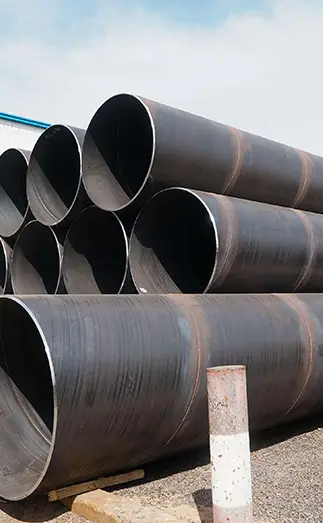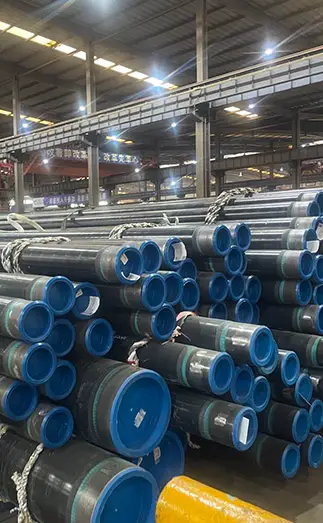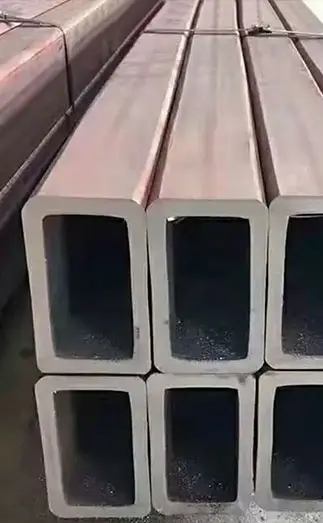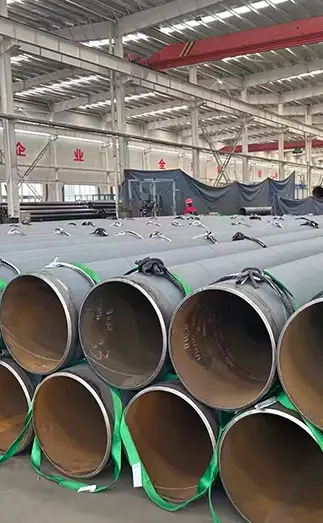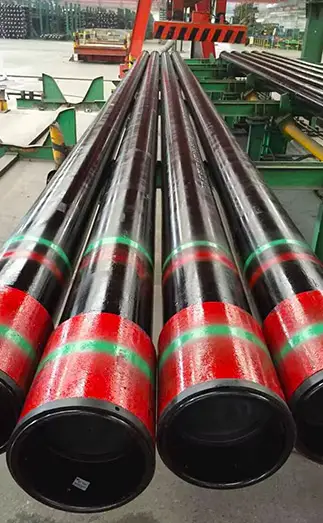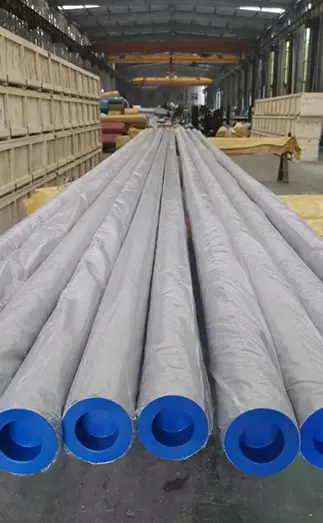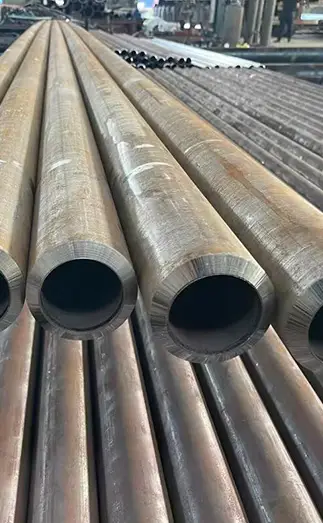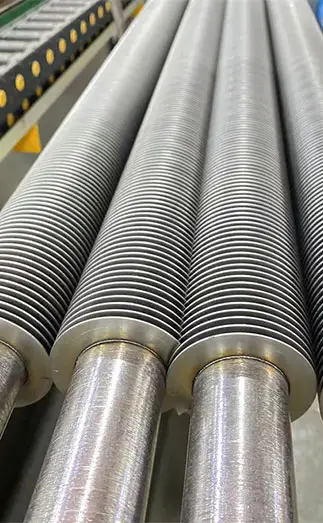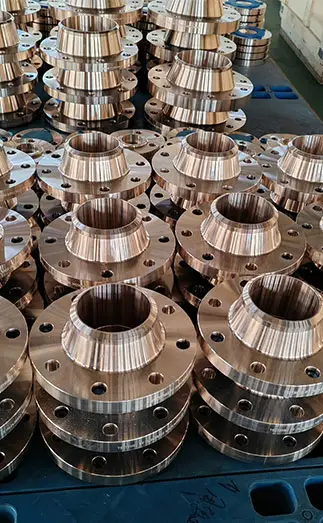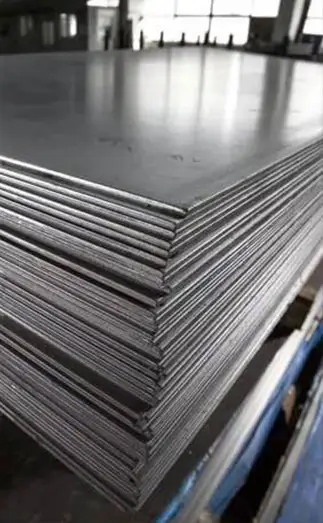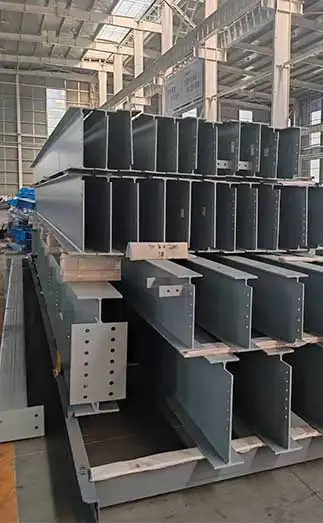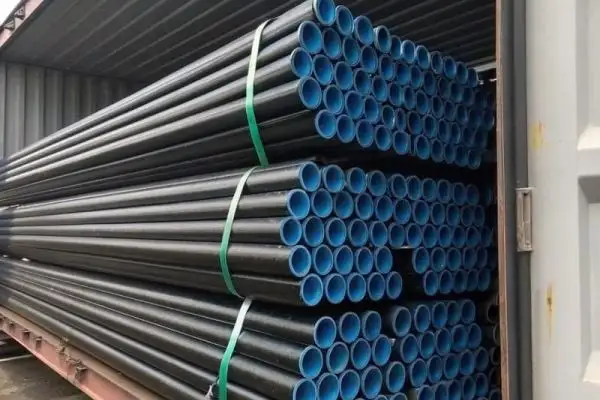In the oil industry, well casing pipes serve a vital role, much like blood vessels in the human body. These pipes are the primary conduit for transporting oil from underground to the surface, providing essential support for the proper functioning of oil wells. However, during actual use, both the inner and outer walls of well casing pipes are subjected to severe corrosion. The internal corrosion is particularly serious due to the presence of corrosive substances like hydrogen sulfide, carbon dioxide, and water in the oil and gas extracted from wells.
Externally, well casing pipes face soil corrosion. Soil is a complex, multi-phase system composed of water, oxygen, microorganisms, and electrolytes that can "attack" the outer walls of these pipes. Therefore, implementing effective anti-corrosion measures is crucial to ensure the longevity and safety of well casings. This article outlines common methods used to prevent corrosion of well casing pipes in different environments.
Super Steel Manufacturing Co.,Ltd is professional well casing pipes manufacturer, for more details, please contact:sales@super-steels.com
1. Selection of Corrosion-Resistant Materials
a. Alloy Steel Materials
Alloy steels that include elements like chromium (Cr), nickel (Ni), and molybdenum (Mo) are often used for well casings due to their excellent corrosion resistance. For example, 316 stainless steel, which contains 16-18% chromium, 10-14% nickel, and 2-3% molybdenum, is commonly selected for corrosive environments like oil and gas wells. Its corrosion resistance is significantly higher than that of ordinary carbon steel.
For high-sulfur wells, sulfur-resistant alloy steel is a preferred material. These alloys are specifically designed to resist corrosion caused by hydrogen sulfide (H₂S), which can lead to sulfide stress corrosion cracking and other corrosion-related issues.
b. Coating Materials
Another widely used method for preventing corrosion is the application of protective coatings. Common coatings include epoxy and polyurethane coatings, which are applied to the surface of the pipe. The thickness of these coatings generally ranges from tens to hundreds of microns, depending on the corrosion conditions specific to the wellbore.
2. Use of Corrosion Inhibitors
Corrosion inhibitors are chemicals injected into the wellbore through the wellhead to form a protective film on the surface of the well casing, which slows down the corrosion process. There are three types of corrosion inhibitors:
a. Anodic Corrosion Inhibitors
These inhibitors work by reducing the anodic reaction on the metal surface, slowing down the corrosion process.
b. Cathodic Corrosion Inhibitors
These inhibitors prevent the cathodic reaction, thus reducing the electrochemical corrosion process.
c. Hybrid Corrosion Inhibitors
These combine the functions of both anodic and cathodic inhibitors, providing broad-spectrum protection.
3. Cathodic Protection
a. Sacrificial Anode Protection
Sacrificial anodes, typically made of magnesium alloy or aluminum alloy, are installed around the well casing. These anodes corrode preferentially because they are more reactive than the casing material, thereby offering cathodic protection to the well casing.
b. Impressed Current Cathodic Protection (ICCP)
In an ICCP system, an external DC power supply and auxiliary anodes are placed near the well casing. This system provides a constant, adjustable protective current to the casing, making it ideal for environments with high corrosion rates. However, ICCP systems require specialized design, installation, and maintenance, with regular monitoring to ensure effectiveness.
4. Improving the Wellbore Environment
a. Water Quality Control
In water injection wells, it is essential to control the quality of the injected water. Filtration, deoxygenation, and sterilization measures help reduce suspended solids, dissolved oxygen, bacteria, and other contaminants that could contribute to corrosion.
b. Reducing Hydrogen Sulfide and Carbon Dioxide
Wells with high levels of hydrogen sulfide (H₂S) and carbon dioxide (CO₂) require mitigation to prevent corrosion. These gases can be removed from the produced fluid using gas-liquid separation technology or chemical absorption methods, reducing their concentrations and thus minimizing the risk of casing corrosion.
5. Regular Inspection and Maintenance
a. Corrosion Detection
Various corrosion detection methods are employed to assess the condition of well casing pipes. Techniques like ultrasonic testing, magnetic particle testing, and radiographic testing help determine the extent of corrosion and whether further anti-corrosion or maintenance measures are needed.
b. Maintenance Measures
When minor corrosion is detected, appropriate maintenance measures can be taken. For surface corrosion, this may involve rust removal and repainting. Severe localized corrosion may require repair welding or other methods to restore the pipe’s integrity. After repair, the welded area should undergo re-inspection to ensure that it is both structurally sound and corrosion-resistant.
Regular inspection and maintenance are crucial for prolonging the service life of well casing pipes. By establishing a comprehensive maintenance plan and tracking the results of each inspection and repair, operators can ensure timely intervention and maintain an effective corrosion prevention strategy.
In summary, well casing pipes are essential for the safe and efficient operation of oil wells, but they face significant corrosion challenges. By selecting appropriate materials, applying coatings, using inhibitors, and adopting protection systems, the integrity and longevity of these pipes can be significantly enhanced. Regular inspection and maintenance further ensure that well casings perform effectively in demanding environments.



 English
English Español
Español Français
Français بالعربية
بالعربية